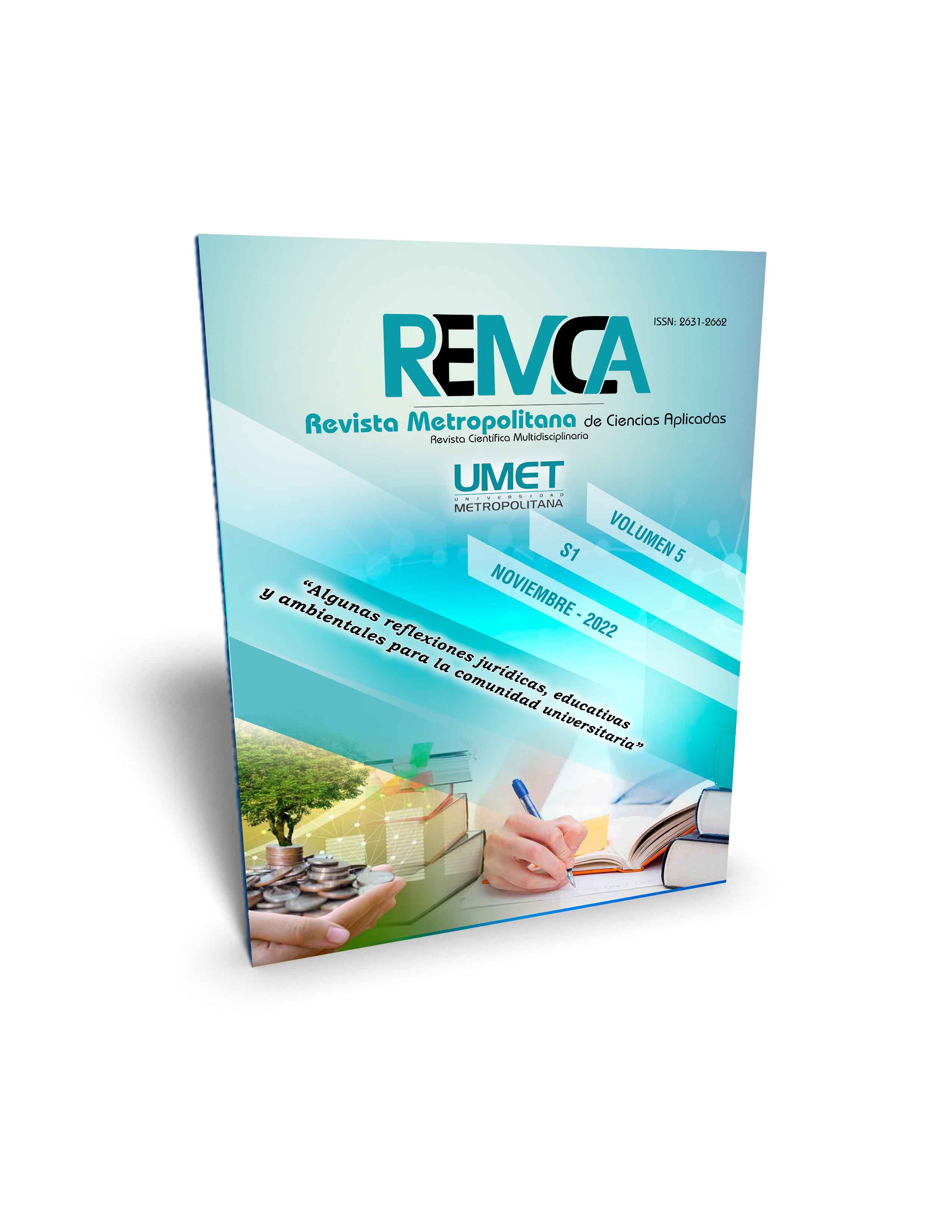Los proyectos de investigación-acción en la formación de las competencias investigativas de los estudiantes universitarios
DOI:
https://doi.org/10.62452/0nd5zq59Palavras-chave:
Educación superior, proyectos de investigación – acción, competencias investigativas, formación inicialResumo
El presente trabajo está dirigido a realizar una aproximación sobre la contribución de los proyectos de investigación – acción en la formación de las competencias investigativas en los estudiantes universitarios desde su formación inicial. Se abordan los fundamentos teóricos que sustenta este paradigma de investigación el cual responde a las exigencias actuales que impone la sociedad como consecuencia del desarrollo de las tecnologías de la información y la comunicación. Es por ello que se realiza una revisión bibliográfica acerca del significado de la formación de competencias investigativas en alumnos universitarios a partir del desarrollo de los proyectos de investigación – acción, posibilitando no solo dar prioridad a la adquisición de los conocimiento y habilidades, sino también, a la formación de actitudes y el compromiso individual que junto al conocimiento y las habilidades permitan dar respuestas satisfactorias a su desempeño profesional, con el fin de dar solución a las insuficiencias investigativas que hoy se manifiestan en la práctica educativa.
Downloads
Referências
Álvarez de Zayas, C. (2003). Pedagogía. Un modelo de formación del hombre. Editorial Kipus.
Bxter, E. (1989). Formación de valores. Una tarea pedagógica. Editorial Pueblo y Educación.
Carrizo, M., y Rodríguez, C. (2012). La formación inicial en Educación Física en España y Argentina. Revista Wanceulen, 9.
González, F. (1985). La personalidad su educación y desarrollo. Editorial Pueblo y Educación.
González, F. (1998). Desarrollo de la personalidad, y el papel de la educación. Conselho Regional de Psicología.
González, M. (1989). Formación de habilidades investigativas en los estudiantes durante la práctica laboral. En Revista Cubana de Educación Superior, 9 (1), 23-27.
Kemmis, S (1986). Teoría crítica de la enseñanza. La investigación-acción en la formación del profesorado. Laertes.
Kemmis, S., & McTaggart, R. (1988). Cómo planificar la investigación-acción. Laertes.
Lewin, K. (1946). Action research and minority problems. Journal of Social Issues, 2(4), 34-46.
Organización de las Naciones Unidas para la Educación, la Ciencia y la Cultura. (1998). Declaración Mundial sobre la Educación Superior en el siglo XXI: visión y acción. UNESCO. https://unesdoc.unesco.org/ark:/48223/pf0000113878_spa
Ramírez, P. (1999). La formación por competencia. Editorial Félix Varela.
Tobón, S. (2014). Proyectos Formativos: Teoría y Metodología. Pearson Educación.
Tobón, S. (2013). Los proyectos formativos y el desarrollo de competencias. Instituto CIFE.
Tobón, S. (2005). Formación basada en competencias. Pensamiento complejo, diseño curricular y didáctica. Ediciones ECOE.
Tobón, S. (2006). Aspectos básicos de la formación basada en competencias. Proyecto Mesesup.
Downloads
Publicado
Edição
Seção
Licença
Copyright (c) 2022 Ignacio García Álvarez, Amauri Batista Salvador, Alodio Mena Campos (Autor/a)

Este trabalho está licenciado sob uma licença Creative Commons Attribution-NonCommercial-ShareAlike 4.0 International License.
Os autores que publicam na Revista Metropolitana de Ciencias Aplicadas (REMCA), concordam com os seguintes termos:
1. Direitos autorais
Os autores mantêm direitos autorais irrestritos sobre suas obras. Os autores concedem ao periódico o direito de primeira publicação. Para tal, cedem à revista, em caráter não exclusivo, direitos de exploração (reprodução, distribuição, comunicação pública e transformação). Os autores podem firmar acordos adicionais para a distribuição não exclusiva da versão publicada do trabalho no periódico, desde que haja reconhecimento de sua publicação inicial nesta revista.
© Os autores.
2. Licença
Os trabalhos são publicados na revista sob a licença Creative Commons Atribuição-NãoComercial-CompartilhaIgual 4.0 Internacional (CC BY-NC-SA 4.0). Os termos podem ser encontrados em: https://creativecommons.org/licenses/by-nc-sa/4.0/deed.pt
Esta licença permite:
- Compartilhar: copiar e redistribuir o material em qualquer meio ou formato.
- Adaptar: remixar, transformar e desenvolver o material.
Nos seguintes termos:
- Atribuição: Você deve dar o crédito apropriado, fornecer um link para a licença e indicar se alguma alteração foi feita. Você pode fazer isso de qualquer maneira razoável, mas não de uma forma que sugira que o licenciante endossa ou patrocina seu uso.
- Não comercial: você não pode usar o material para fins comerciais.
- Compartilhamento pela mesma licença: se você remixar, transformar ou criar a partir do material, deverá distribuir sua criação sob a mesma licença do trabalho original.
Não há restrições adicionais. Você não pode aplicar termos legais ou medidas tecnológicas que restrinjam legalmente outros de fazerem qualquer coisa que a licença permita.




